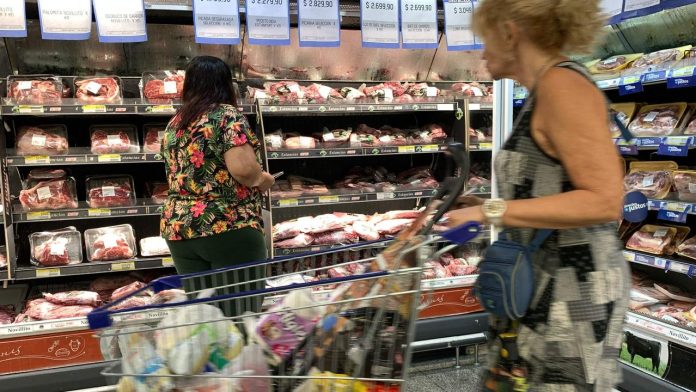Affluent Argentines, who have already tightened their belts in the face of inflation of 140 per cent and above, are increasingly turning to second-hand clothing markets both to find bargains and to get extra cash from the sale of old clothes, Reuters reports.
The South American country, which has the region’s second-highest inflation rate and is the largest exporter of cereals, is increasingly turning to second-hand clothing markets. The economy of South America’s second most inflationary country in the region and a major grain exporter is facing its worst crisis in decades. Two-fifths of the population lives in poverty and the looming recession is pushing Argentina to hold a run-off presidential election next Sunday.
Growing voter anger is causing radical outsider Javier Milay to emerge as a slight favourite in the polls to overtake Economy Minister Sergio Massa, the candidate of the ruling Peronist coalition whose participation in the election has been hampered by his inability to contain price rises. 22-year-old student Aylen Chiclana in Buenos Aires said:
You can’t just go to the mall and buy something you like as you did before. Today prices are unthinkable.
New jeans have more than doubled in price since last year, and this purchase alone represents more than a third of Argentina’s monthly minimum wage.
Annual inflation, already at 138 per cent, will rise further when authorities release official figures for October on Monday, with monthly growth of around 10 per cent, slightly below the peaks of August and September.
For years, Argentina has struggled with high inflation, which economists attribute to money printing and an ingrained distrust of the local peso. Over the past year, inflation has accelerated to the highest since 1991.
Beatriz Lauricio, a 62-year-old semi-retired teacher, said that on weekends she and her husband, a bus company worker, go to a clothing fair to sell old clothes and make some money. She said, adding that when it was canceled one weekend due to bad weather the couple’s finances “collapsed”:
We’re middle class, lower middle class I would say. We have our jobs but we need to come to the fair. We’re not doing this as a little extra so we can go on vacation to Brazil, we do it out of daily necessity.
Maria Silvina Perasso, an organiser of a clothing fair in Tigre, on the outskirts of Buenos Aires, says many people shop there because prices are rising much faster than wages. The local minimum wage is 132,000 pesos a month, which is $377 at the official exchange rate, but half that at the real rate on the streets because of capital controls – restrictions on foreign currency transactions. She noted:
With the economy the way it is, they buy clothes at 5% or 10% of the value that comes from a store and they can buy things for their families.
